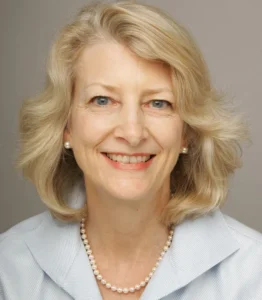When Antoni (Toni) Ballabriga joined BBVA, a global bank headquartered in Spain, in a corporate responsibility role in 2007, he could not have foreseen how fundamentally his career and the banking industry would change over the next 17 years. But as the financial crisis spread across the globe that year, he quickly realized that to restore trust in finance institutions, he had to become an innovator and champion for change in his own company. With that, his career as a corporate social intrapreneur began.
Since then, Toni has worked with BBVA’s executive team, the board, and employees to ensure that consideration for the impact that the bank has on society and the planet is built into every aspect of the bank’s operations. He has broken through comfort zones, prompted uncomfortable conversations, and collaborated with colleagues to achieve a remarkable result: sustainability is now fully embedded in BBVA’s core strategy. According to BBVA’s Chair Carlos Torres Vila, “sustainability is the biggest business opportunity in this decade.”
In recent years he has stepped up to an even greater challenge: to build awareness of the consequences of climate change within the entire financial industry and prompt action to address related risks and opportunities. Now working at a systems level, he serves as the bank’s representative for multiple international initiatives at the United Nations, the European Banking Federation, the World Economic Forum, and the International Energy Agency.
I have known Toni, and had the pleasure of seeing his career evolve, since he was selected as a Fellow in the Aspen First Movers Fellowship program in 2010. In a recent conversation, I sought to learn more about his current work and asked him what advice he has for people who want to follow his intrapreneurial lead.
Nancy McGaw: You have quite an unusual title. As Global Head of Sustainability Intelligence and Advocacy, what do you do?
Toni Ballabriga: I would highlight two main roles that are very connected. One key responsibility is to gather expert knowledge on sustainability, sustainable finance and industrial knowledge in technologies to decarbonize our world, so that we can anticipate the future and incorporate this intelligence into our decision making at BBVA.
My second key function is to position BBVA as a global leader and to actively participate in the reshaping of the financial industry that is taking place to embed sustainability in any financial decision. My advocacy role involves driving change within the banking industry, setting standards, establishing cross-sector partnerships, and advocating for bold public policies.
Working with diverse organizations and stakeholders gives me up-to-date insights which I share with the executive team. I also make sure that our senior leaders have opportunities to hear from stakeholders and advocates who have wide ranging points of view.
NM: Can you give me specific examples of how this kind of engagement led to an influential outcome for the industry?
Ballabriga: One important outcome resulted from BBVA’s participation in the United Nations Environment Program – Finance Initiative.
“Working with peers in the industry, we negotiated and signed the UN Principles for Responsible Banking (PRB). These principles are bold and comprehensive. Principle One, for example, states that signatories to the PRB will align their business strategy “to be consistent with and contribute to individuals’ needs and society’s goals as expressed in the Sustainable Development Goals, the Paris Climate Agreement and other relevant national and regional frameworks.”
Other principles relate to impact goals, stakeholders, governance structures, transparency, and accountability. 330 banks are now signatories to these principles. There is also a PRB Academy that offers a variety of courses for bankers to help them implement the principles.
This group also launched the Net Zero Banking Alliance which now has 144 members representing 41% of the global banking assets, all committed to net zero financed emissions by 2050. The UN-convened Alliance accelerates the setting and implementation of science-based targets for greenhouse gas emissions reductions and the development of common practices in climate-related target setting for banks. I am currently a member of its Steering Group.
BBVA is also part of the Alliance of CEO Climate Leaders, hosted by the World Economic Forum. This group has aligned on 10 high impact measures for governments and corporations to close the 600 gigaton gap in emissions reductions required to keep the global temperature increase below 1.5 degree Celsius.
I try to put into practice what Otto Scharmer says: ”I work not only at BBVA, but also from BBVA” to promote the systemic change we need in the financial system.
NM: As you drive change at the systems level, what does this mean for your work now within BBVA?
Ballabriga: In addition to working outside the bank, I have helped build a network of experts within the bank that we call an “Industry Observatory” so that bankers can access specialized expertise across the bank to meet the increasingly complex sustainability technology challenges of our clients. Decarbonization and sustainability is a story of innovation.
In some cases, this requires designing financial solutions-like structuring green loans or sustainable investment funds. But there is also greater demand for advisory services to meet very specific industry and market needs and to help companies transform their business models to be more sustainable. For example, we have advised cement and steel companies on how to produce more sustainable products. And we have worked with an aviation company on developing sustainable fuels. To do that kind of advisory work, we must be able to access expertise that exists across the bank on emerging technologies related to, say, carbon capture, or hydrogen production.
NM: You have spent nearly two decades building your expertise and influence. What advice would you give to people starting out in their careers who would like to follow in your intrapreneurial footprints?
Ballabriga: You must understand where your company is and start there. If your company is in an earlier stage in its sustainability journey, you will need to begin, for example, by seeking to make a single product or process more sustainable. Or you may see an opportunity to mitigate some social or environmental risk.
In this phase, it’s important to understand better the needs of all the others of the company, and see how you can partner with others, to develop and incubate new initiatives.
Start there to build your understanding and your credibility. Then, if you have gotten the attention of senior leadership, you may have the opportunity to create a broader sustainability strategy that can add real value.
You build in small steps to get to the point where you can be part of developing a holistic, transformative plan that will embed sustainability within the core strategy of your company.
NM: I guess that progress doesn’t happen overnight.
Ballabriga: No, it certainly doesn’t. And each phase of the process requires different skills and different competencies. So you have to commit to your own professional development if you want to continue on this path.
Also, along the way, you need to understand that you have to pick the right moment for advocating for change. Sometimes you have to wait. And when you do have a chance to make a case for change, you must be ready with a powerful idea and compelling arguments, grounded in sound reasoning and in facts.
One thing I have learned over time is that no matter what phase you are in mapping your company’s sustainability journey, you need to identify the key stakeholders in your company who have the power to make decisions and the ones who can derail your effort. You need to work closely with both to build support.
A good example of that engagement for me was when we proposed to our board and global leadership in February 2018 to set our first big target to mobilize €100 billion by 2025 for sustainable finance. It was critical to partner with a member of the leadership in the Corporate Investment Banking unit to better develop the business case, gain internal credibility, and get real ownership and accountability for this goal.
NM: Any final words of advice?
Ballabriga: It’s critical to remember that this work is a marathon and that each new challenge can be translated into a new opportunity. You must prepare for the long haul. In my career, I have certainly found that the journey is worth the effort.
This blog post was originally published on LinkedIn. Follow Nancy McGaw for more insights on business and society.


